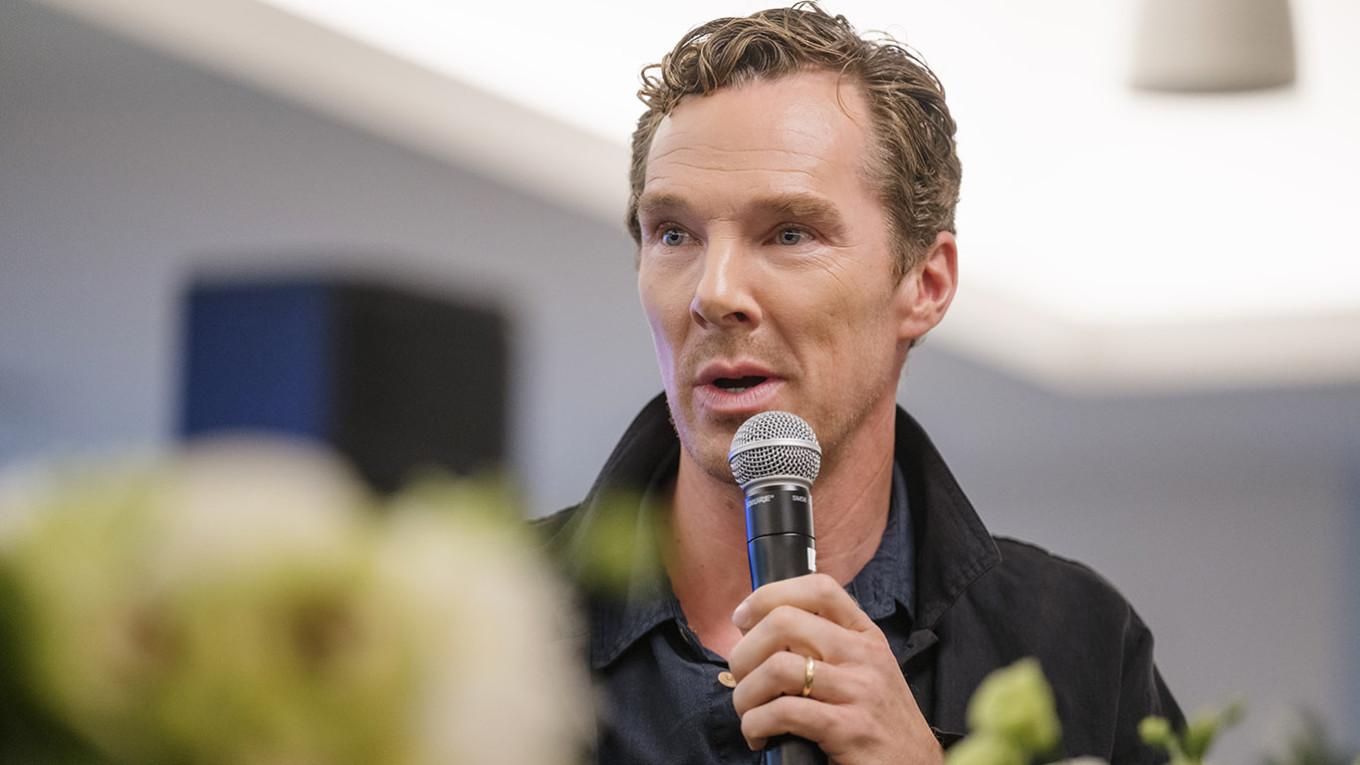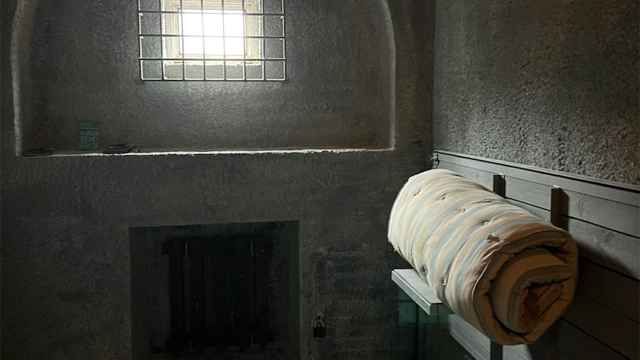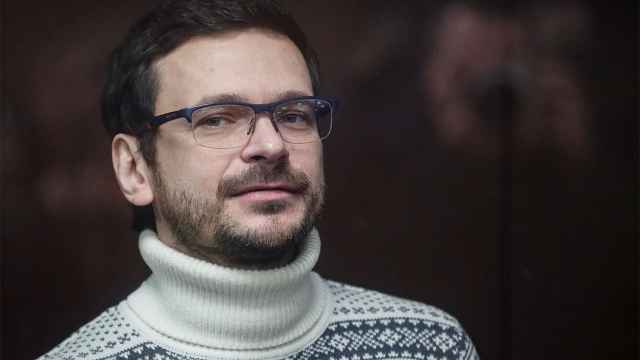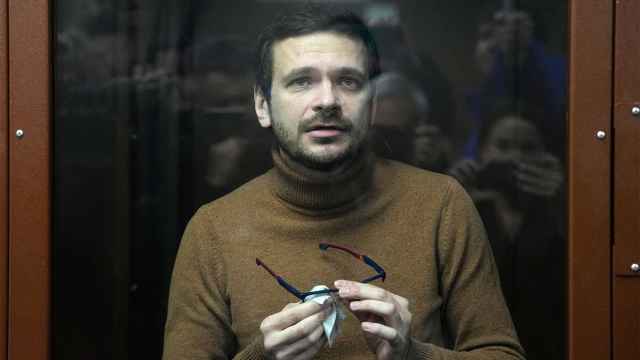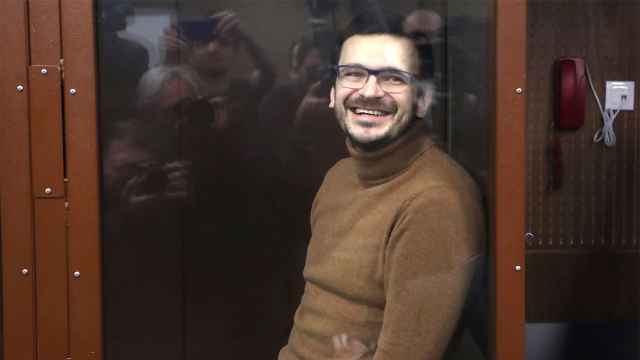Full disclosure: I have never watched the BBC’s Sherlock. But like many Russians, I can still recognize Benedict Cumberbatch.
The other day, I came across a piece of news that might not make big headlines: on December 9, Cumberbatch will read excerpts from Alexei Navalny’s newly released memoir, Patriot, on BBC Radio 4. It made me pause for a bit, smile warmly, and reflect on the question of how much international solidarity the Russian opposition receives from the international community.
The truth is that democratic countries supporting the Russian opposition is not just an act of goodwill or virtue signaling. It is a strategic move.
Cumberbatch’s gesture of solidarity means a lot to me and like-minded Russians who had to flee the country in opposition to the war. In some ways, symbolic acts like these can feel more meaningful than financial or institutional support because they remind us that we are not alone in our fight against Putin’s regime. This kind of solidarity keeps us going – it inspires, motivates and reassures us that the democratic world has our back.
But this is not just about the present. It is about the future. When, hopefully, we win, Russian civil society and the opposition in particular will lead a new democratic Russia onto the global stage. We will be the ones working with the international community, so building solidarity with us through financial and institutional support and on a personal, human level – is crucial. So, Cumberbatch’s reading Navalny’s work, while being symbolic, is more strategic than he and the BBC might realize. It is an investment in the future that serves not only our interests but those of the West as well.
Despite the popular narrative of a post-Soviet Russia briefly embracing democracy and freedom, the reality for the non-systemic opposition has always been harsh. State repression intensified during Putin’s third presidential term, hitting a new low with the 2022 invasion of Ukraine. The war triggered yet another wave of Russian emigration. Dubbed the “Great Exodus” —an extension of the “Putin Exodus” that began in 2012— it has forced hundreds of thousands of critics of the regime into exile.
Today, the Russian opposition is more fractured than ever before. Those who stayed in Russia are either silenced, imprisoned or dead like Navalny. Others, like Vladimir Kara-Murza, Ilya Yashin (both released in this year’s historic prisoner swap), Yulia Navalnaya, and ex-prisoner Mikhail Khodorkovsky, have taken the role of opposition leaders. Their visions for Russia’s future – and how to get there – are different, leading to endless infighting within the Russian opposition. They all agree on two critical points: the war in Ukraine must end and Russia will be free. Yet, despite this shared stance, tensions are growing between the Russian opposition and Ukrainian activists.
At the IT-summit in Lisbon this November, Yulia Navalnaya was interrupted by Ukrainian activists who started an air raid alarm during her speech about Western tech companies complying with repressive laws in authoritarian regimes. The activists shouted: “Stop Russia” and “Stop the war.” In response, Navalnaya called on Ukrainians not to see the Russian opposition as an enemy, emphasizing that both share a common foe – Putin’s regime.
Tension rooted in the Russian opposition’s struggle to balance being a domestic political force and showing solidarity for Ukraine has made an already fragile situation even harder for Putin’s critics to navigate. Many in the opposition have faced growing alienation from the international community, where any non-negative reference to those fighting on the Russian side is often met with hostility in public discourse. As a result, the Russian opposition’s initiatives and statements are frequently met with criticism, further complicating their efforts to gain support abroad.Former political prisoners Vladimir Kara-Murza and Ilya Yashin, both jailed for their anti-war stances, faced backlash for calling to ease Western sanctions on ordinary Russians. Similarly, the November 17 anti-war march in Berlin, organized by the Russian opposition, was criticized and dismissed as a “PR move.” Why? It might have to do with the perceived imperialist undertones of the Russian mainstream opposition.
While Kara-Murza, Yashin and Navalnaya envision a democratic, multinational Russia, many Ukrainians and members of Russia’s ethnic minority groups – say that true peace in Europe can only come with Russian disintegration. For them, the very idea of preserving Russia as a unified state is inherently imperialist.
However, painting the entire Russian opposition with the same imperialist brush risks diminishing crucial international support and further isolating Putin’s critics in the broader fight against the regime. Overemphasizing these imperialist undertones could distract from the larger goal: dismantling Putin’s dictatorship and freeing Russians from tyranny.
This makes such simple symbolic acts — like Cumberbatch reading Navalny’s words — vital for us, as they send a powerful message to Russian civil society: the democratic world stands with us. But showing solidarity with the Russian opposition now is also pragmatic. It prepares the world for what comes after Putin and keeps alive the hope that Russia has the potential to become a Western ally, not an adversary. History proves it is possible: the international community’s support for opposition during Pinochet’s dictatorship in Chile played an important role in the country’s transition to democracy. Will it work for Russia? Only time will tell. But the support we receive now fuels our struggle for freedom.
Many Russians – including me – hesitate to admit how much we do to resist both the war and Putin’s regime. We have paid with our freedom, our homeland, and in some cases our lives. Navalny, who sacrificed everything for his beliefs, once asked us to dedicate just 15 minutes a day to fighting the regime.
Now, Cumberbatch is dedicating his 15 minutes. On December 9, BBC will broadcast his reading of Patriot. I know this text by heart, but will tune in anyway. You should too. After all, this is Benedict Cumberbatch fighting Putin in solidarity with Russians. How could you not join?
A Message from The Moscow Times:
Dear readers,
We are facing unprecedented challenges. Russia's Prosecutor General's Office has designated The Moscow Times as an "undesirable" organization, criminalizing our work and putting our staff at risk of prosecution. This follows our earlier unjust labeling as a "foreign agent."
These actions are direct attempts to silence independent journalism in Russia. The authorities claim our work "discredits the decisions of the Russian leadership." We see things differently: we strive to provide accurate, unbiased reporting on Russia.
We, the journalists of The Moscow Times, refuse to be silenced. But to continue our work, we need your help.
Your support, no matter how small, makes a world of difference. If you can, please support us monthly starting from just $2. It's quick to set up, and every contribution makes a significant impact.
By supporting The Moscow Times, you're defending open, independent journalism in the face of repression. Thank you for standing with us.
Remind me later.



